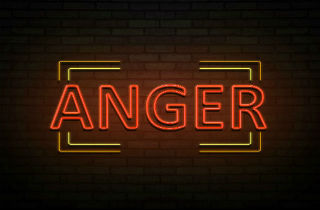The art of letting go of the stuff … that is killing you!
Freedom from chemical addiction is based on forgiving those whom have hurt you. Having the courage to “let it go,” is a something you need to do. We review why it’s important and how to do it in a few simple steps below.
Why do drug addicts and alcoholics refuse to forgive?
I have found that one of the hardest things for people to do is to let go of an event where someone had hurt them either physically, stole something from them or verbally abused them. The lists of various types of hurts are as large as the number of people that were recipients of the hurts.
To be clear, a lack of forgiveness is the unwillingness of a person to let go of the hurt that is bothering them. They think by holding on to a grudge or hurt, that somehow they are punishing that person that hurt them. Nothing could be further from the truth. In fact, holding onto anger tends to only hurt YOU in the end. Here are two important reasons why:
1. Stress causes disease
Withholding forgiveness and the decision not to “let it go” can cause serious problems in the body. Health care literature can verify this as emotional problems especially brought on by unforgiveness causes stress overload and is one of the largest producers of illness in the human body. Stress can lead to high blood pressure and all kinds of physical illnesses. The literature is full of articles on the mind-body connection. For example, do a Google search on “stress and heart disease” to find this out.
2. Resentment and anger can trigger relapse
Stress caused by not forgiving someone can lead an addict into using drugs/alcohol. Many a person has experienced a stressful life event and turned to substances to “escape” from their problems. How many times have you heard a person say, “I just can get over what they did to me.” This shows that they are holding onto some life event, be it a crisis or a long term series of abuse, in which the person experienced severe trauma which has affected their emotions and affected them physically. They don’t realize it, but what they are holding onto is like radiation. Powerful emotions are running through their minds and in many cases causing serious physical consequences that may lead them to get further into their addiction and physically harm their bodies.
How to forgive when you still have pain and anger
When a memory is bonded to a traumatic event, the memory bond is extremely strong, and is almost impossible to forget. If this memory was caused by another person, the best way to remove it is to forgive the person who caused it. Most people say, “That’s impossible! You don’t know what he did to me.” That’s precisely the point. Everyone thinks that their event is somehow special and therefore it is impossible to deal with it since it happened to them.
Without sounding too hard on the person, everything that’s happened to you, has happened to someone else and they also had to deal with it. The combination of events probably is unique, but the hurt, words, abuse, neglect, stealing, lying and cheating drug and alcohol abuse has already happened to others—different time, date and name, but its pretty much the same. One effective way to deal with your situation, is to begin the process of forgiving them.
How to start letting go
1. Recognize that something needs to change. If you don’t do this, more than likely, you will be stuck in a continuous cycle of anger, bitterness, rage, depression, loneliness and drugs/alcohol use.
2. Write out the person’s name and exactly what they did wrong as well as what emotions are attached to that act. Try to pin down the major act and then focus on this act. You need to deal with each act one at a time. Lumping all your hurts into a basket of junk usually doesn’t work and allows confusion to reign.
3. Make a list of all the major issues and make sure you don’t leave anything out. Sometimes you will have to write this list out up to three times before your mind will allow all the hurts to surface. Your mind will sometimes not allow you to overload, so do the best you can and move on to the next step.
4. Write out this phrase, “I now forgive (the person’s name) just as if it never happened.” This allows the hurt to be forgiven and you lose the “handle” of the hurt or grudge and really, you don’t want it back anyway!
5. Now say it out loud, “I now forgive (the person’s name) just as if it never happened.”
6. Sign your name and date it. This makes a contract with yourself and finalizes your act of forgiveness.
Let it Go!
You may wish to burn this paper is a fireplace or on an outdoor grill. Say to the ashes, “Ashes, you can’t hurt me. All that is left of this hurt is just ashes and now it is gone forever. I let it go and am at peace with it now and forever.”
Good for you! You are now ready to take a deep breath, go for a walk, take a victory lap around the block or however you want to celebrate your victory of being free from this hurt and now LET THE HEALING BEGIN! You are one step closer to being free from addiction.









Related Posts